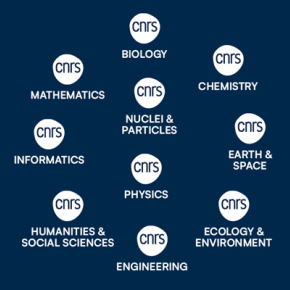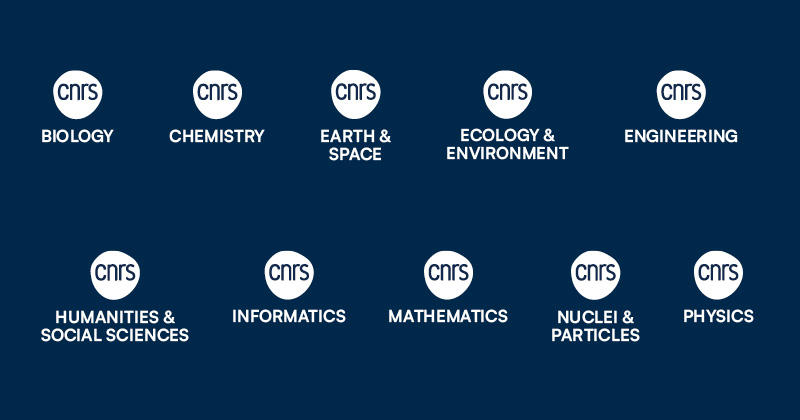
New names for CNRS institutes
A more straightforward description of the research agency will emphasize its unity and clarify its operations.
In late 2022, an online study1 conducted in France with the general public by Harris Interactive at the request of the CNRS revealed that the CNRS is the best-known name for a scientific organization, but that the public has little knowledge of its missions and operations.
The name CNRS is not sufficiently associated with its own activities, as it is not explicitly displayed within the names of its constituent entities. In particular, the division of the organisation into ten institutes whose names do not mention the CNRS helps fragment its image, obscure its interdisciplinary activity, and weaken its sovereignty. The word “institute” itself, which denotes autonomy, negates the idea of belonging to a whole, which is nevertheless central to the organisation’s project.
To underscore with the external public the coherence of the research conducted at the CNRS—as well as its interdisciplinary nature—the organisation has decided to ascribe new names to its ten institutes. These new designations will display each institute’s attachment to the CNRS, and will clearly indicate the discipline practiced there. However, they will change neither the legal names of the institutes nor the intrinsic characteristics2 of the three national institutes (INSMI, INSU, and IN2P3).
For Alain Schuhl, Chief Scientific Officer of the CNRS, “the immediate benefit of emphasising the CNRS name will be to clarify its scope and profile for the public. These alternate names will reaffirm the unity of the organisation, whose entities are in dialogue and cooperation.”
Given the research agency’s scope – the largest research organization in Europe and one of the largest in the world, with over 33,000 staff members and 1,100 research laboratories in France and abroad—most under joint supervisory authority with other partners—this change will be made gradually, and will be guided by teams from the CNRS Communications Department.
New names for the 10 CNRS institutes
- Institute of Biological Sciences: CNRS Biology
- Institute of Chemistry: CNRS Chemistry
- National Institute for Earth Sciences and Astronomy: CNRS Earth & Space
- Institute of Ecology and Environment: CNRS Ecology & Environment
- Institute for Engineering and Systems Sciences: CNRS Engineering
- Institute for Humanities and Social Sciences: CNRS Humanities & Social Sciences
- Institute for Informatics : CNRS Informatics
- National Institute for Mathematical Sciences: CNRS Mathematics
- National Institute of Nuclear Physics and Particle Physics: CNRS Nuclei & Particles
- Institute of Physics: CNRS Physics



